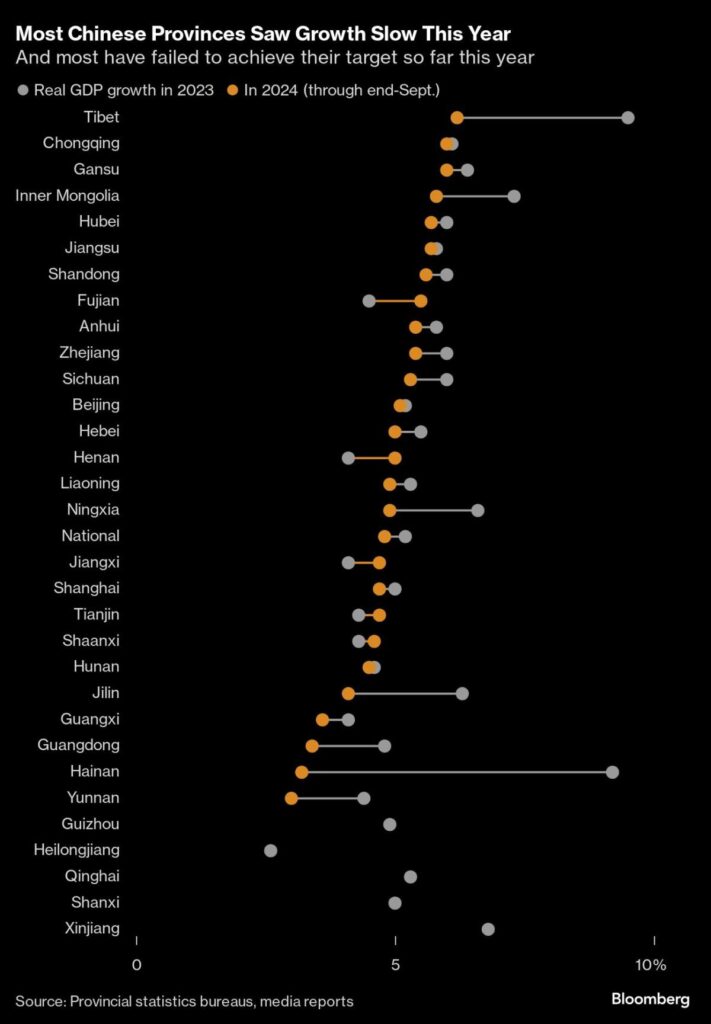(Bloomberg) — Chinese provinces that account for about a third of the economy are enduring a worse year than the nation as a whole, succumbing to a slowdown that likely swayed the government in moving ahead with a range of stimulus measures last month.
Most Read from Bloomberg
Only five mainland provinces are seeing real gross domestic product growing faster this year than the whole of last year, according to Bloomberg calculations based on official figures. Of the 26 provinces that have reported third-quarter data, 11 experienced a steeper deceleration than the national slowdown.
The worst performers so far this year are Tibet, Jilin and Hainan, whose 3.2% gain is 6 percentage points lower than in 2023. Even economic powerhouses such as Zhejiang, Shanghai and Jiangsu saw GDP growth slow.
Guangdong, which made up more than 10% of the economy last year, expanded just 3.4%, the weakest result since the pandemic and down 1.4 percentage points from the whole of 2023. GDP nationwide expanded 4.8% in the first nine months, versus 5.2% last year.
The sharp downswing evident in key Chinese regions has left wide swathes of the $18 trillion economy expanding far below the official target of around 5%. In response, Beijing pivoted in late September and deployed a barrage of measures that marked President Xi Jinping’s boldest stimulus since the pandemic.
The problems facing China’s economy are widespread, with industrial output falling in Heilongjiang, Qinghai and Shanxi this year and retail sales also dropping in Beijing and Shanghai, two of the wealthiest cities in the country.
Underscoring how personal consumption never really rebounded from the pandemic, restaurant and hotel sales have fallen 5.1% this year in Beijing and are down more than 11% in Shanghai.
Local governments across China are also having to contend with worsening finances, as debt piles up and incomes fall due to a slump in land sales. Though the central government has promised to do more to help them pay off debt, so far their deficits continue to worsen.
The broad budget deficit for all local governments grew almost 3% this year from a year earlier, reaching 11.2 trillion yuan ($1.6 trillion) through the end of September, according to Ministry of Finance data released last week.
–With assistance from Yujing Liu.
Most Read from Bloomberg Businessweek
Read the full article here
